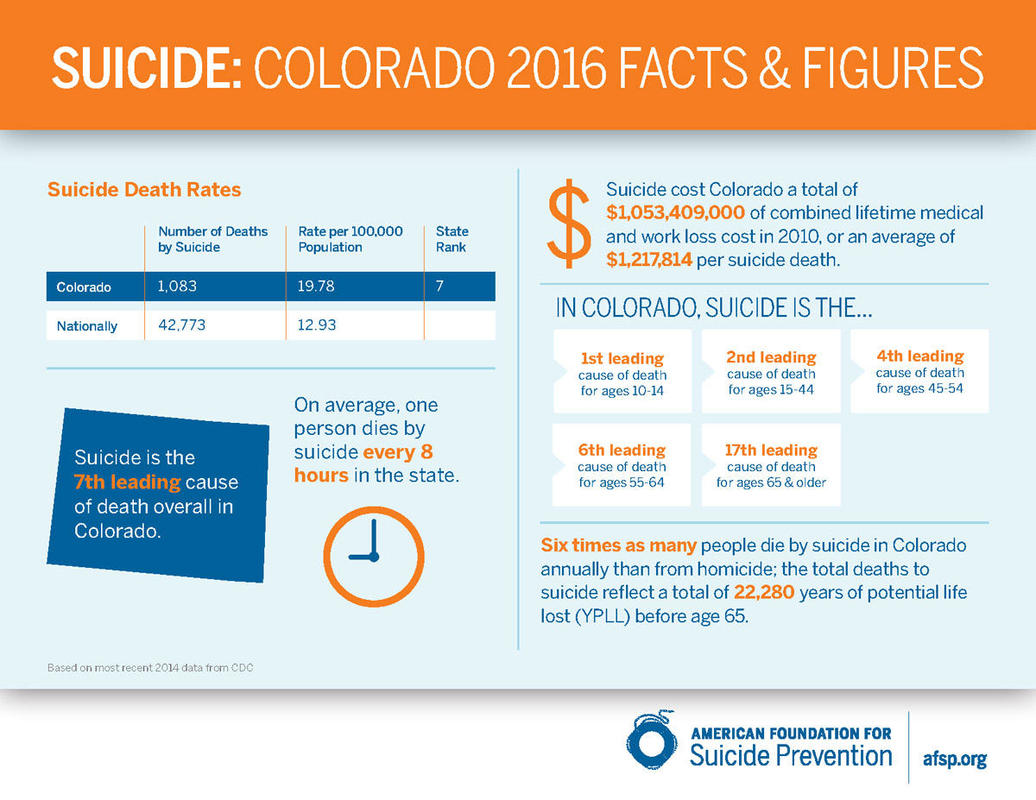Are you at risk for suicide?
Know when to get help
|
By Caleb Anderson
Co-Executive Director of Recovery Hope Orchid Independent Contributor Suicide is a brutal choice made by someone who is suffering deeply. But it can be prevented. We just have to know how to do so by being aware of the warning signs. But how do you know if you are at risk? How can you stop yourself from heading down that path before you get there? Being aware of your circumstances and the risks involved is the best start. According to the Centers for Disease Control, suicide is the 10th leading cause of death in the United States. While depression and mood disorders are the leading cause of suicide, drug and alcohol abuse are second. Those with a substance use disorder are almost six times more likely to report a suicide attempt in their lifetime than those without a substance use disorder. If you’re suffering with a substance abuse problem, seek help from an inpatient substance abuse treatment center. Though it may seem like a difficult challenge, the benefits of recovery will outweigh the struggle. You’ll have 24-hour support from a professional, trained staff to help you through it. Once you’ve completed treatment, you’ll find your substance-free life will make you stronger, happier and more centered. You’ll no longer feel a constant need to feed your addiction, and you can begin to heal the damage addiction has done to your relationships. A clean body and mind are their own reward. Suicide riskIf you think you might be at risk for suicide, take a closer look at your life and try to understand yourself and your actions. Signs that you may be in trouble and it’s time to get help include: ● Mental disorders, particularly mood disorders, schizophrenia, anxiety disorders, and personality disorders ● Alcohol and substance use disorders ● Hopelessness ● Impulsive and/or aggressive tendencies ● A history of trauma or abuse ● A major physical illness or loss of abilities ● If you’ve ever attempted suicide before ● If anyone in your family has committed or attempted suicide ● Loss of a job or financial loss ● Loss of a relationship ● Easy access to lethal means, such as weapons ● Local clusters of suicide ● Lack of social support and a sense of isolation ● Lack of healthcare, especially mental health and substance abuse treatment ● Exposure to others who have died by suicide Know the Warning SignsSome warning signs may help you determine if you or a loved one is at risk for suicide. If you’re doing these behaviors, stop and get help immediately. Call a suicide hotline and talk to someone. If someone you know is doing these things, intervene and be there for him or her: ● Talking about wanting to die ● Looking for a way to kill themselves, like searching online for or buying a gun ● Talking about feeling hopeless or having no reason to live ● Talking about feeling trapped or in unbearable pain ● Talking about being a burden or worthless ● Increasing the use of alcohol or drugs ● Acting anxious or agitated ● Behaving recklessly ● Sleeping too little or too much, a common sign of depression ● Withdrawing or isolating themselves ● Showing rage or talking about seeking revenge ● Extreme mood swings Here are a few ways to stop your suicidal thoughts: ● Call a suicide hotline or mental health center ● Go to an emergency room ● Call a trusted friend, and have him or her come over and stay with you so you’re not alone ● Remove anything you have that can harm you from your home, such as weapons ● Talk to a spiritual leader ● Get in touch with a therapist or other mental health professional It’s a popular saying because it’s true: Suicide is a permanent solution to a temporary problem. Whatever awful thing you’re going through will not stay. With the proper help and clarity, you can see through to the other side of sadness and start your life anew. Get help now, and don’t look back. Your life is worth living. |
Val's Note: I want to thank Caleb for his excellent article.
When we talk about highly individual, emotionally charged topics like Suicide Prevention, the same advice doesn't work for everyone. I've certainly seen comments by people who resented the phrase, "Suicide is a temporary solution to a permanent problem." On the other hand, some people really like it and appreciate it, and it helped them. Additionally, I really have concerns about the current unscientific constructs of so-called "personality disorders." We really have to nail this stuff down biologically and understand what is some pretty complex, biological dysregulation which can very definitely be affected by environmental factors. |

